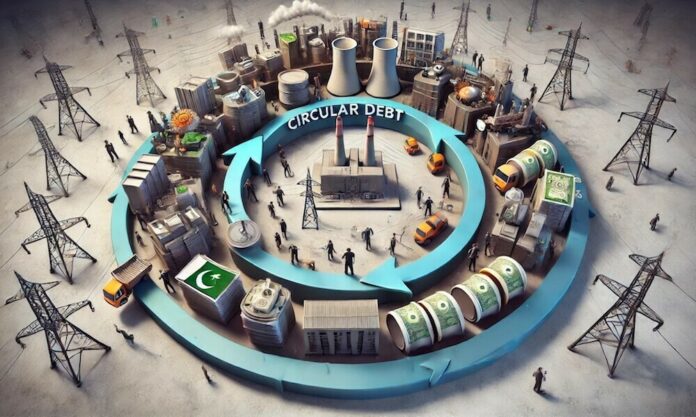ISLAMABAD: Prime Minister Shehbaz Sharif will virtually witness the signing of a Rs1.25 trillion financing agreement with a consortium of 18 commercial banks on Wednesday, aimed at addressing Pakistan’s chronic circular debt crisis in the power sector.
According to sources, the Prime Minister, currently in New York attending the United Nations General Assembly, will join the ceremony remotely/virtually. The signing event will take place at the Prime Minister’s Office in Islamabad, with senior officials from the Ministry of Energy (Power Division), regulators, and top banking executives in attendance.
Formal invitations were issued by Rihan Akhtar, CEO of the Central Power Purchasing Agency–Guaranteed (CPPA-G), who is coordinating the ceremony on behalf of the Power Division, said sources.
They added that the participating banks include some of Pakistan’s leading financial institutions: Habib Bank, National Bank of Pakistan, Allied Bank, United Bank, MCB, Bank Alfalah, Meezan Bank, Faysal Bank, Bank Al Habib, Dubai Islamic Bank, Askari Bank, The Bank of Punjab, Bank Islami, Habib Metropolitan Bank, Al Baraka Bank, Soneri Bank, Bank of Khyber, and MCB Islamic Bank.
According to industry sources, the financing package has been structured to ease liquidity pressures in the power sector by refinancing existing loans and partially retiring payables to independent power producers (IPPs) and fuel suppliers. The government estimates that total circular debt currently stands at Rs1.6 trillion, down from over Rs2 trillion earlier this year. However, inefficiencies within the sector continue to generate Rs47 billion in fresh arrears each month.
Circular debt has been a persistent challenge for over a decade, driven by a combination of delayed tariff adjustments, mounting subsidies, poor recovery rates, and weak governance. Despite repeated interventions, distribution companies (DISCOs) remain plagued by mismanagement, line losses, widespread electricity theft, and political interference in operational decisions.
“The Power Division has been beating the drum on circular debt reduction, but the real challenge lies in structural reforms of Discos,” said an industry source. “Politically motivated appointments of CEOs and boards have weakened these companies, while scandals such as overbilling millions of consumers have further eroded public trust.”
Of the Rs1.25 trillion package, a significant portion will be used to refinance loans taken by Power Holding Limited (PHL), a government entity that has been carrying much of the sector’s debt. The allocation of the remaining funds is still under discussion, with potential uses including payments to IPPs, clearing petroleum dues, and settling outstanding subsidy claims.
While the agreement is expected to reduce immediate financial pressure, experts caution that it is not a permanent solution. “This deal will buy time,” said a former official of the Energy Ministry. “But unless governance is strengthened, losses are reduced, and subsidies are rationalized, circular debt will inevitably return.”
The government, however, is presenting the deal as a milestone achievement, aimed not only at reassuring the public of its commitment to tackling the energy crisis but also at sending a positive signal to international lenders, particularly the International Monetary Fund (IMF), which has long urged Islamabad to address mounting energy arrears.
For consumers facing skyrocketing electricity bills and industries grappling with supply disruptions, the true test will be whether the government follows through with deeper reforms. As one industry source said, “Financial engineering alone won’t fix the sector. What we need is accountability, efficiency, and transparency in operations.”
It is pertinent to mentioning that the signing of the Rs1.25 trillion circular debt deal represents a high-profile attempt to stabilize Pakistan’s power sector. Yet without parallel measures to overhaul governance and improve operational performance, experts warn that the same cycle of debt and inefficiency could soon reemerge, leaving consumers and businesses to bear the cost.




